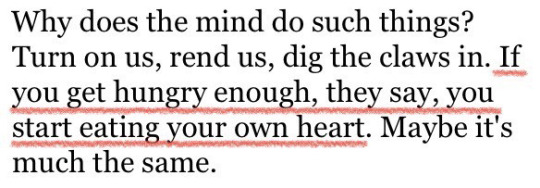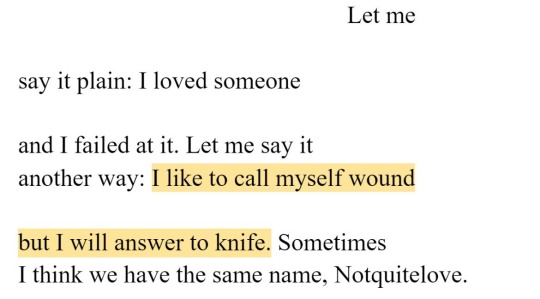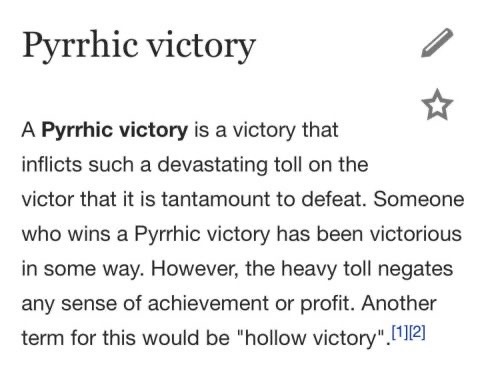#homer quotes
Text
“Any moment might be our last. Everything is more beautiful because we're doomed. You will never be lovelier than you are now. We will never be here again.”
― Homer, The Iliad
#quoteoftheday#quotes#quote#quotations#book quotes#book quote#beautiful quote#homer#the iliad#homer quotes#homer the iliad#classic#greek mythology#mythology#literature#greek#greek literature#literature quotes#iliad#trojan war#hector of troy#words words words#words#quote of the day#quote of the week#quote of the month#art#literature academia#dark academia#dark acadamia quotes
220 notes
·
View notes
Text
“Any moment might be our last. Everything is more beautiful because we're doomed. You will never be lovelier than you are now. We will never be here again.”
― Homer, The Iliad
#dark academia#dark academia quotes#dark academia aesthetic#academia aesthetic#light academia#light academia aesthetic#books and literature#classic literature#literature#art#quotes#classics#study#the secret history#donna tartt#if we were villains#kill your darlings#homer#homer quotes#ancient greece#the iliad quotes#the iliad#iliad#iliad quotes
497 notes
·
View notes
Text
Wait, I'm confused. So the cops knew that internal affairs were setting them up the whole time?
What are you talking about? Nothing like that happened.
Oh! You see, when I get bored I make up my own movie in my head. I have a very short attention span
#homer#homer quotes#simpsons#the joy of sect#movementarians#blisstonia#known for its high levels of bliss
0 notes
Text








KILL ME IF IT'S WORTH IT; ON FLESH.
silas denver melvin // ethel cain // george bataille // blythe baird // margaret atwood // nicole homer // emily palermo.
#sorry 2 silas denver melvin for having to endure all the posts where he's mentioned </3#on flesh#web weaving#silas denver melvin#ethel cain#george bataille#blythe baird#margaret atwood#nicole homer#emily palermo#writing#poetry#webweaving#quotes
9K notes
·
View notes
Text
"I think Homer outwits most writers who have written on the War [fantasy archetype], by not taking sides.
The Trojan war is not and you cannot make it be the War of Good vs. Evil. It’s just a war, a wasteful, useless, needless, stupid, protracted, cruel mess full of individual acts of courage, cowardice, nobility, betrayal, limb-hacking-off, and disembowelment. Homer was a Greek and might have been partial to the Greek side, but he had a sense of justice or balance that seems characteristically Greek — maybe his people learned a good deal of it from him? His impartiality is far from dispassionate; the story is a torrent of passionate actions, generous, despicable, magnificent, trivial. But it is unprejudiced. It isn’t Satan vs. Angels. It isn’t Holy Warriors vs. Infidels. It isn’t hobbits vs. orcs. It’s just people vs. people.
Of course you can take sides, and almost everybody does. I try not to, but it’s no use; I just like the Trojans better than the Greeks. But Homer truly doesn’t take sides, and so he permits the story to be tragic. By tragedy, mind and soul are grieved, enlarged, and exalted.
Whether war itself can rise to tragedy, can enlarge and exalt the soul, I leave to those who have been more immediately part of a war than I have. I think some believe that it can, and might say that the opportunity for heroism and tragedy justifies war. I don’t know; all I know is what a poem about a war can do. In any case, war is something human beings do and show no signs of stopping doing, and so it may be less important to condemn it or to justify it than to be able to perceive it as tragic.
But once you take sides, you have lost that ability.
Is it our dominant religion that makes us want war to be between the good guys and the bad guys?
In the War of Good vs. Evil there can be divine or supernal justice but not human tragedy. It is by definition, technically, comic (as in The Divine Comedy): the good guys win. It has a happy ending. If the bad guys beat the good guys, unhappy ending, that’s mere reversal, flip side of the same coin. The author is not impartial. Dystopia is not tragedy.
Milton, a Christian, had to take sides, and couldn’t avoid comedy. He could approach tragedy only by making Evil, in the person of Lucifer, grand, heroic, and even sympathetic — which is faking it. He faked it very well.
Maybe it’s not only Christian habits of thought but the difficulty we all have in growing up that makes us insist justice must favor the good.
After all, 'Let the best man win' doesn’t mean the good man will win. It means, 'This will be a fair fight, no prejudice, no interference — so the best fighter will win it.' If the treacherous bully fairly defeats the nice guy, the treacherous bully is declared champion. This is justice. But it’s the kind of justice that children can’t bear. They rage against it. It’s not fair!
But if children never learn to bear it, they can’t go on to learn that a victory or a defeat in battle, or in any competition other than a purely moral one (whatever that might be), has nothing to do with who is morally better.
Might does not make right — right?
Therefore right does not make might. Right?
But we want it to. 'My strength is as the strength of ten because my heart is pure.'
If we insist that in the real world the ultimate victor must be the good guy, we’ve sacrificed right to might. (That’s what History does after most wars, when it applauds the victors for their superior virtue as well as their superior firepower.) If we falsify the terms of the competition, handicapping it, so that the good guys may lose the battle but always win the war, we’ve left the real world, we’re in fantasy land — wishful thinking country.
Homer didn’t do wishful thinking.
Homer’s Achilles is a disobedient officer, a sulky, self-pitying teenager who gets his nose out of joint and won’t fight for his own side. A sign that Achilles might grow up someday, if given time, is his love for his friend Patroclus. But his big snit is over a girl he was given to rape but has to give back to his superior officer, which to me rather dims the love story. To me Achilles is not a good guy. But he is a good warrior, a great fighter — even better than the Trojan prime warrior, Hector. Hector is a good guy on any terms — kind husband, kind father, responsible on all counts — a mensch. But right does not make might. Achilles kills him.
The famous Helen plays a quite small part in The Iliad. Because I know that she’ll come through the whole war with not a hair in her blond blow-dry out of place, I see her as opportunistic, immoral, emotionally about as deep as a cookie sheet. But if I believed that the good guys win, that the reward goes to the virtuous, I’d have to see her as an innocent beauty wronged by Fate and saved by the Greeks.
And people do see her that way. Homer lets us each make our own Helen; and so she is immortal.
I don’t know if such nobility of mind (in the sense of the impartial 'noble' gases) is possible to a modern writer of fantasy. Since we have worked so hard to separate History from Fiction, our fantasies are dire warnings, or mere nightmares, or else they are wish fulfillments."
- Ursula K. Le Guin, from No Time to Spare, 2013.
#ursula k. le guin#homer#quote#quotations#the iliad#trojan war#storytelling#fantasy#fiction writing#war#conflict#tragedy#john milton#paradise lost#greek mythology
2K notes
·
View notes
Text

Nicole Homer, ed. by Kate Rogers and Viki Holmes, from Not a Muse: The Inner Lives of Women: A World Poetry Anthology; "Wait"
[Text ID: “Quiet, girl. / Sit in your room, / pretend that / that his hands are not familiar with you,”]
#nicole homer#excerpts#writings#literature#poetry#fragments#selections#words#quotes#poetry collection#typography
923 notes
·
View notes
Text

#lazy#unmotivated#im stuck#i’m stuck#stuck#survival mode#quotes#words#life lessons#wisdom#inspirational words#growth#healing#emotional trauma#trauma#trauma survivor#nakeia homer
4K notes
·
View notes
Text
Sing O goddess, of Hera's rage, how they vilified her for it, even if she was a woman betrayed. Sing O goddess, of Helen's desire, how everyone forgot she was the daughter of the most powerful God and that was what made the whole world burn. Sing O goddess, of Hestia's fires, how she left the cruelty of Olympus for a peaceful life - how she gave Prometheus the idea to steal the sacred flames for the mortal world. Sing O goddess, but not of Odysseus or Menelaus, Achilles or Agamemnon. Sing instead of women full of fire. Sing us the torch song which brings wildfire when Goddesses like you are ignored.
Nikita Gill, Great Goddesses 2
#spilled ink#greek mythology#hera#helen#hestia#greek myth#writing#poetry#words#great goddesses#poem#feminist quotes#feminist literature#feminist books#homer
962 notes
·
View notes
Text
Zeus: Hades, man! Come join us in tormenting this Odysseus guy!
Poseidon: Yeah, he's coming to your kingdom next. It's your turn now!
Hades: I don't know, seems a little unethical-
Persephone: *pushes Hades aside* Sounds fun! Can I join?
#zeus#poseidon#hades#persephone#hades and persephone#odysseus#the odyssey#homer's odyssey#epic the musical#epic the underworld saga#the underworld#greek mythology#incorrect greek mythology quote#incorrect greek mythology#incorrect greek gods#Persephone releasing the souls of Odysseus' loved ones to fuck with him is a metal move#girl is following her father and uncle's footstep for some giggles
354 notes
·
View notes
Text

Christopher Kukstis on John Darnielle for The Harvard Crimson, 2004
#quotes that make me feel fucking crazy#he might’ve made a good homer…………. *explodes*#it posts#tmg#the mountain goats#john darnielle#jenny from thebes
680 notes
·
View notes
Text

Apollo and Diana by Giovanni Battista Tiepolo
"Muse, sing of Artemis, sister of the far-shooter, Parthenos the virgin who delights in arrows, who was fostered with Apollon.
She waters her horses from Meles deep in reeds, and swifty drives her all-golden chariot through Smyrna to vine-clad Klaros where Apollon god of the silver bow, sits waiting for far-shooting delighter in arrows.
And so hail to you, Artemis, in my song and to all goddesses as well."
- Homeric Hymn 9 to Artemis (trans. Evelyn-White)
#helpol#artemis deity#apollo#apollon#apollo deity#artemis worship#artemis devotion#apollo worship#apollo devotion#homeric hymns#hymns#hellenic polytheism#deity work#deity worship#polytheism#prayers#deity prayers#quotes#artwork#artemis
318 notes
·
View notes
Text
“…there is the heat of Love, the pulsing rush of Longing, the lover’s whisper, irresistible—magic to make the sanest man go mad.”
― Homer, The Iliad
#dark academia quotes#kill your darlings#dark academia#academia aesthetic#books and literature#classic literature#dark academia aesthetic#books and libraries#education#writers#ancient greece#homer#ancient greek mythology#homer quotes#the iliad#homer's iliad#the iliad quotes#love#the secret history#donna tartt#if we were villains
131 notes
·
View notes
Text
Achilles: See I'm straight but if there was a man I would marry it'd be Patroclus.
Briseis: How do you feel about that, Pat?
Patroclus:
Patroclus: It's not helping with the rumors.
Briseis: I think the kiss you guys shared in my tent isn't helping with the rumors.
Achilles: Yeah I just hate that he didn't give me enough tongue.
#mythology memes#incorrect quotes#incorrect mythology#incorrect mythology quotes#greek mythology#incorrect greek mythology#incorrect iliad#the iliad#iliad#homers iliad#homer's iliad#achilles#patroclus#achilles x patroclus#briseis#patroklos
229 notes
·
View notes
Text
“Name one hero who was happy”
- The song of Achillies, Madeline Millar

#film#literature#donna tartt#the secret history#if we were villains#the illiad#homer#achilles#patroclus#the song of achilles#madeline miller#dark acadamia aesthetic#dark academia#dark acadamia quotes#dark moodboard#chaotic acadmeia quotes#chaotic academia#light academia#classics#classical history#classical literature#writers and poets
670 notes
·
View notes
Text
"[The Iliad] avoids all the obvious highlights of the traditional story, including the Wooden Horse. It does not start at the beginning — with the Judgment of Paris, the wedding of Peleus and Thetis, the abduction of Helen, or the muster of ships at Aulis — or end with the fall of the city. Instead, the action takes place over a few days in the last year of the war — neither the beginning nor the end. A brief and ostensibly trivial episode — a squabble between two Greek commanders — becomes the subject of a monumental twenty-four-book epic.
Moreover, The Iliad eschews the obvious way for Greeks to tell the Trojan War story: as a conflict between 'us' and 'them.' The Trojans are not dishonest foreigners, despite the fact that Paris abducted his host’s wife. Implausibly, they speak the same language and worship the same gods as the Greeks.
The poem is ancient from our perspective. But it came at the end, not the beginning, of a long poetic tradition. Whoever created The Iliad used the myths, tropes, and techniques developed by many generations of oral poets, and reinvented them to create an extraordinarily original and surprising written epic."
- Emily Wilson, from the introduction to her translation of The Iliad, 2023.
2K notes
·
View notes
